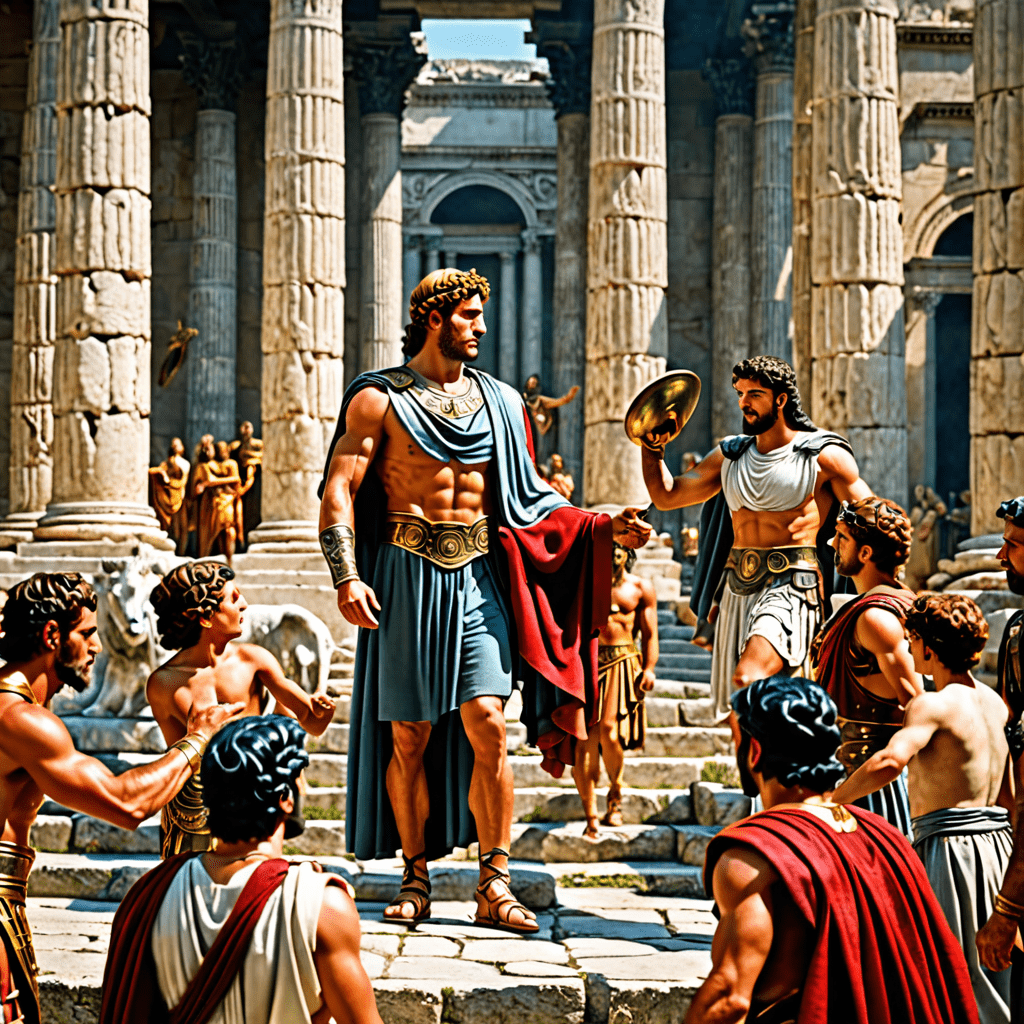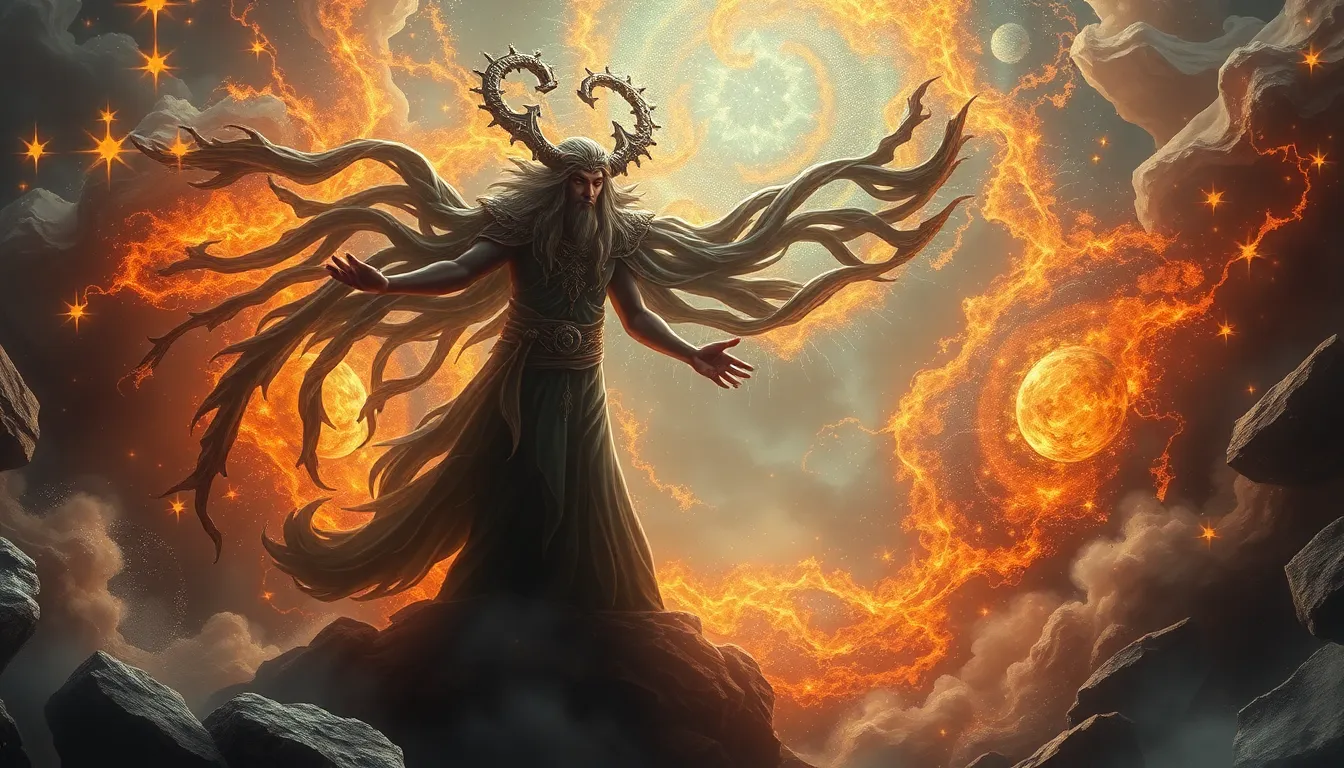The Myth of Ennugi: Guardian of the Tablet of Destinies in Mesopotamian Mythology
Introduction
Ennugi, the guardian of the Tablet of Destinies, occupies a captivating position in Mesopotamian mythology. This enigmatic figure embodies the intricate interplay between human agency and divine predetermination, shaping the narratives of gods and mortals alike. Delving into the myth of Ennugi unveils profound insights into Mesopotamian beliefs about fate, free will, and the forces that govern the cosmos.
The Tablet of Destinies in Mesopotamian Mythology
The Tablet of Destinies, also known as the "Tablet of the Fates," held immense significance in Mesopotamian mythology. This celestial artifact, inscribed with the destinies of all beings, served as the ultimate source of authority and knowledge. The gods themselves were subject to its dictates, their actions and destinies predetermined by the immutable markings upon the tablet.
Ennugi: Guardian and Scribe of Fate
Ennugi's role as guardian and scribe of the Tablet of Destinies placed him at the nexus of power and knowledge. His celestial position imbued him with profound wisdom and the ability to influence the course of events.
The Celestial Scribe
As the celestial scribe, Ennugi meticulously recorded the destinies of gods and mortals on the Tablet of Destinies. His meticulous hand, guided by divine inspiration, ensured the precise and unerring inscription of each individual's fate.
Ennugi's Role in the Creation Myth
Ennugi's role extended beyond his duties as scribe. He played a pivotal role in the creation myth, participating in the assembly of the gods that brought the cosmos into being. His presence at this primordial event underscores his significance in the Mesopotamian worldview.
Attributes and Iconography of Ennugi
Ennugi was often depicted as a bearded figure, his head adorned with a horned crown. His celestial attributes, including the Tablet of Destinies and a stylus, emphasized his role as the guardian and scribe of fate.
The Myth of Ennugi and the Tablet of Destinies
The myth of Ennugi and the Tablet of Destinies narrates a tale of ambition, transgression, and divine retribution. It recounts Ennugi's audacious attempt to seize control of the Tablet of Destinies, his subsequent escape from the gods, and his eventual capture and punishment.
Ennugi's Acquisition of the Tablet
Driven by ambition or perhaps a desire to manipulate the fates, Ennugi devised a plan to steal the Tablet of Destinies. He successfully evaded the vigilance of the gods, absconding with the celestial artifact and plunging the heavens into disarray.
Ennugi's Escape from the Gods
Ennugi's flight from the gods was fraught with peril. He faced relentless pursuit, his every move closely monitored by the divine forces. Despite the odds stacked against him, Ennugi's cunning and resourcefulness enabled him to evade capture for an extended period.
Ennugi's Capture and Punishment
Ennugi's audacious escape proved to be short-lived. The gods, determined to restore order and reclaim their stolen authority, relentlessly pursued him. In a climactic confrontation, Ennugi was apprehended and subjected to severe punishment.
Ennugi and the Concept of Fate
The myth of Ennugi and the Tablet of Destinies explores the complex and multifaceted concept of fate in Mesopotamian belief. It raises profound questions about the nature of free will and the extent to which human endeavors can alter the predetermined course of events.
Divine and Human Destiny
The myth suggests that both gods and mortals are subject to the dictates of fate. Even the most powerful deities cannot escape the destiny inscribed upon the Tablet of Destinies. This concept reinforces the idea of a cosmic order that governs all beings, regardless of their status or power.
The Unchangeable Nature of Fate
The myth emphasizes the unchangeable nature of fate. Ennugi's attempts to alter his destiny and seize control of the Tablet of Destinies ultimately proved futile. His actions underscore the futility of resistance against the forces that shape our lives.
Free Will vs. Predestination
Despite the emphasis on predestination, the myth also hints at the possibility of free will. Ennugi's cunning and resourcefulness, even though ultimately unsuccessful, suggest that individuals may possess some degree of agency within the confines of their predetermined destiny.
The Significance of Ennugi in Mesopotamian Religion
Ennugi's role in Mesopotamian mythology underscores his profound significance in the religious beliefs of the time. His figure embodies the complex relationship between divine authority, human agency, and the inexorable forces of fate.
Ennugi's Importance in the Pantheon
Ennugi occupied a significant position in the Mesopotamian pantheon. His close association with the Tablet of Destinies and his celestial status placed him among the most powerful and influential deities.
The Moral and Philosophical Implications of the Myth
The myth of Ennugi and the Tablet of Destinies carries profound moral and philosophical implications. It cautions against pride and hubris, reminding us that even the most cunning individuals cannot escape the consequences of their actions.
Ennugi's Influence on Mesopotamian Art and Literature
Ennugi's figure found expression in various forms of Mesopotamian art and literature. Depictions of Ennugi on cylinder seals, tablets, and other artifacts showcase his importance in the Mesopotamian imagination.
Theories surrounding Ennugi and the Tablet of Destinies
The myth of Ennugi and the Tablet of Destinies has inspired numerous theories and interpretations. Scholars have explored the origins and evolution of the myth, its symbolic interpretations, and its enduring relevance to our understanding of the human condition.
The Origins and Evolution of the Myth
The origins of the myth of Ennugi and the Tablet of Destinies remain shrouded in uncertainty. Scholars have traced its elements to ancient Mesopotamian beliefs about fate, rulership, and the divine order.
The Symbolic Interpretations of Ennugi's Figure
Ennugi's figure has been interpreted in various ways. Some scholars view him as a representation of human ambition and the desire to control one's destiny, while others see him as a symbol of the limitations of human agency in the face of a predetermined fate.
Ennugi as a Representation of the Human Condition
Ennugi's myth can be seen as a reflection of the human condition, embodying our struggles with the concepts of free will, fate, and the search for meaning in a world governed by unseen forces.
Conclusion
The myth of Ennugi and the Tablet of Destinies offers a captivating glimpse into the intricate world of Mesopotamian mythology. It provides profound insights into the beliefs about fate, free will, and the divine order that shaped Mesopotamian society. Ennugi's enigmatic figure continues to intrigue and inspire, reminding us of the enduring human fascination with the mysteries of destiny and the forces that govern our lives.
6. Ennugi's Punishment and the Restoration of Order
Ennugi's audacious act did not go unpunished. The gods, enraged by his theft and the disruption of cosmic order, pursued him relentlessly. Ultimately, Enn




